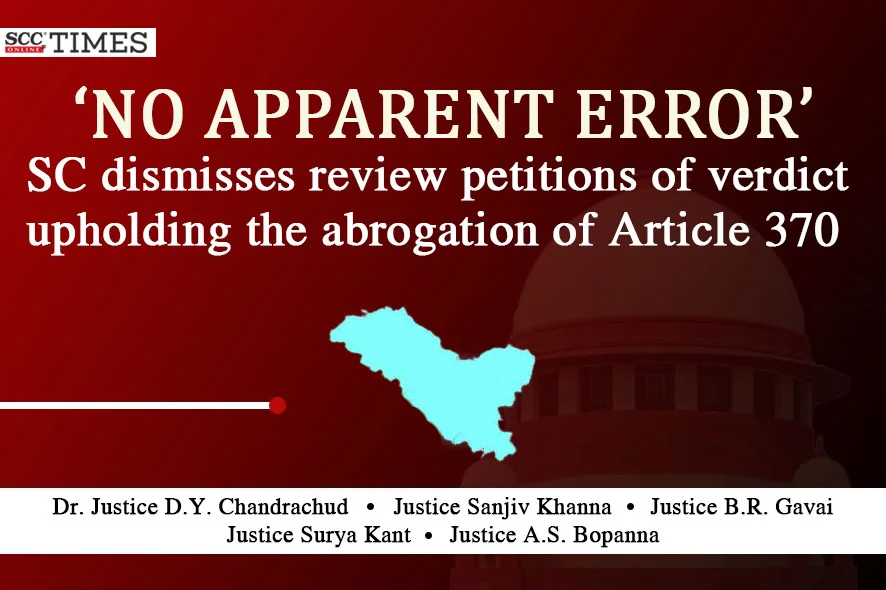Supreme Court: The five Judge Bench compromising of Dr. DY Chandrachud, CJ., Sanjiv Khanna, BR Gavai, Surya Kant and AS Bopanna, JJ. dismissed the review petitions of the verdict upholding the abrogation of the Article 370 of the Constitution of India granting special status to the State of Jammu and Kashmir.
The review petitions were filed against the judgment dated 11-12-2023 by the Awami National Conference, Jammu and Kashmir People Democratic Party and several other organisations and individuals. The Court had upheld the Union’s action of abrogating Article 370, and the restoration of statehood was directed for in the decision.
While dismissing the review petitions, the Bench said that there was no error apparent on the face of the record and no case was made out for review under Order XLVII Rule 1 of the Supreme Court Rules, 2013.
Genesis of the Matter
The President issued Constitutional Orders (‘CO’) 272 and 273 during the subsistence of a Proclamation under Article 356(1)(b), whereby, the Constitution of India was applied to the State of Jammu and Kashmir abrogating Article 370. The Court upheld the Presidential Orders, while saying that the Presidential power under Article 356 to issue a Proclamation is of an exceptional nature which has wide ramifications on the autonomy of the State and the federal framework at large. It was held that the concurrence of the State Government was not required for the exercise power under Article 370(1)(d) to apply all provisions of the Constitution to the State, the President securing the concurrence of the Union of India on behalf of the State Government was not mala fide.
It was also held that Article 370 was a temporary Provision and was introduced to serve two purposes, firstly, the transitional purpose: to provide for an interim arrangement until the Constituent Assembly of the State was formed and could take a decision on the legislative competence of the Union on matters other than the ones stipulated in the Instrument of Accession, and ratify the Constitution; and secondly, a temporary purpose- an interim arrangement in view of the special circumstances because of the war conditions in the State.
CASE DETAILS
|
Citation: Appellants : Respondents : |
Advocates who appeared in this case For the petitioner: |
CORAM :












